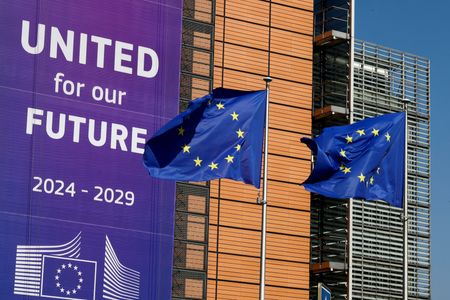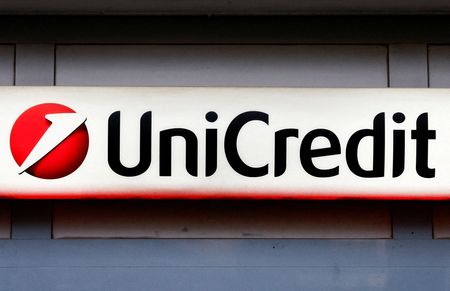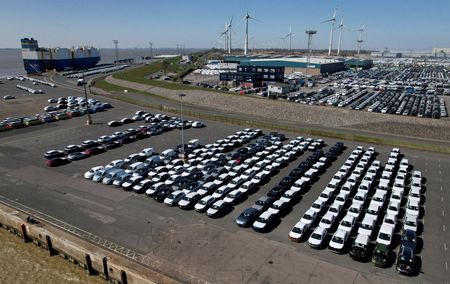By Kate Abnett
BRUSSELS (Reuters) -The European Union’s plans to cut back sustainability reporting rules could expose European companies to more climate change-related lawsuits, 31 legal scholars said in a letter published on Friday.
The European Commission in February proposed loosening corporate sustainability rules for businesses in Europe, responding to criticism that EU red tape hinders competitiveness with rivals in China and the United States.
Among the changes, the EU would delete a requirement in its due diligence law for large companies to put into effect a “transition plan” to ensure they comply with the EU’s targets to cut greenhouse gas emissions. Companies would still need to have such a plan, but would not be legally obliged to put it into practice.
“Mere paperwork, instead of good faith action, would suffice in meeting the obligation,” the legal scholars said in the letter.
“The absence of a binding regulatory framework will correspond directly with increased liability risks for private actors,” they said, referring to potential court cases from plaintiffs citing risks to the environment and public health.
The letter’s 31 signatories included Thom Wetzer, Associate Professor of Law and Finance at the University of Oxford, Christina Eckes, Director of the University of Amsterdam’s Centre for European Law and Governance, and Wolf-Georg Ringe, Director of the Institute of Law and Economics at the University of Hamburg.
The academics cited said court cases highlighted the climate-related legal risks businesses already face, citing pending cases against companies including TotalEnergies and Eni, from plaintiffs demanding the firms align their corporate actions with climate goals.
A European Commission spokesperson declined to immediately comment on the letter.
The Commission has previously said its proposals would make life easier for businesses while keeping the EU on track for its targets to cut CO2 emissions. The plan must be negotiated by the European Parliament and member states – a process that can take more than a year.
European businesses have long said strict regulations hampered their ability to compete globally, with U.S. President Donald Trump’s aggressive deregulation drive increasing calls for Brussels to act. Campaigners have criticised the EU plans to soften sustainability rules as gutting corporate accountability.
(Reporting by Kate Abnett, editing by Philippa Fletcher)










